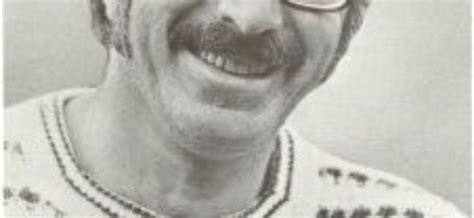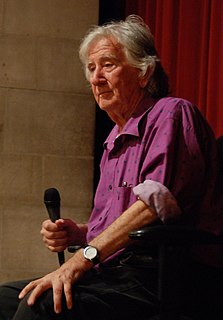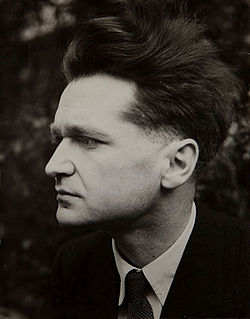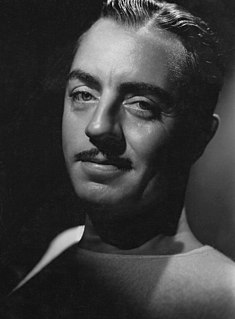A Quote by Kenneth Tynan
All writing is an antisocial act, since the writer is a man who can speak freely only when alone; to be himself he must lock himself up, to communicate he must cut himself off from all communication; and in this there is something always a little mad.
Related Quotes
How does one chip off the marble that doesn't belong? ... That comes about through five things: humility, reverence, inspiration, deep purpose, and joy. No great man has ever wise-cracked his way to greatness. Until one learns to lose one's self he cannot find himself. No one can multiply himself by himself. He must first divide himself and give himself to the service of all, thus placing himself within all others through acts of thoughtfulness and service.
The act of writing bears something in common with the act of love. The writer, at his most productive moments, just flows. He gives of that which is uniquely himself. He makes himself naked, recording his nakedness in the written word. Herein lies some of the terror which frequently freezes a writer, preventing him from producing. Herein, too, lies some of the courage that must be entailed in letting others learn how one has experienced or is experiencing the world.
First, the desert is the country of madness. Second, it is the refuge of the devil, thrown out into the "wilderness of upper Egypt" to "wander in dry places." Thirst drives man mad, and the devil himself is mad with a kind of thirst for his own lost excellence--lost because he has immured himself in it and closed out everything else. So the man who wanders into the desert to be himself must take care that he does not go mad and become the servant of the one who dwells there in a sterile paradise of emptiness and rage.
Theatre has nothing to do with buildings or other physical constructions. Theatre - or theatricality - is the capacity, this human property which allows man to observe himself in action, in activity. Man can see himself in the act of seeing, in the act of acting, in the act of feeling, the act of thinking. Feel himself feeling, think himself thinking.
For a very great many years, I asked this question: ‘To communicate or not to communicate?’ If one got himself in such thorough trouble by communication, then of course one should stop communicating. But this is not the case. If one gets himself into trouble by communicating, he should further communicate. More communication, not less, is the answer.
Man can will nothing unless he has first understood that he must count on no one but himself; that he is alone, abandoned on earth in the midst of his infinite responsibilities, without help, with no other aim than the one he sets himself, with no other destiny than the one he forges for himself on this earth.
The following are the universally fundamental laws of literary communication: 1. one must have something to communicate; 2. one must have someone to whom to communicate it; 3. one must really communicate it, not merely express it for oneself alone. Otherwise it would be more to the point to remain silent.
When every one is to cultivate himself into man, condemning a man to machine-like labor amounts to the same thing as slavery. If a factory-worker must tire himself to death twelve hours and more, he is cut off from becoming man. Every labor is to have the intent that the man be satisfied.... His labor is nothing taken by itself, has no object in itself, is nothing complete in itself; he labors only into another's hands, and is used (exploited) by this other.




































